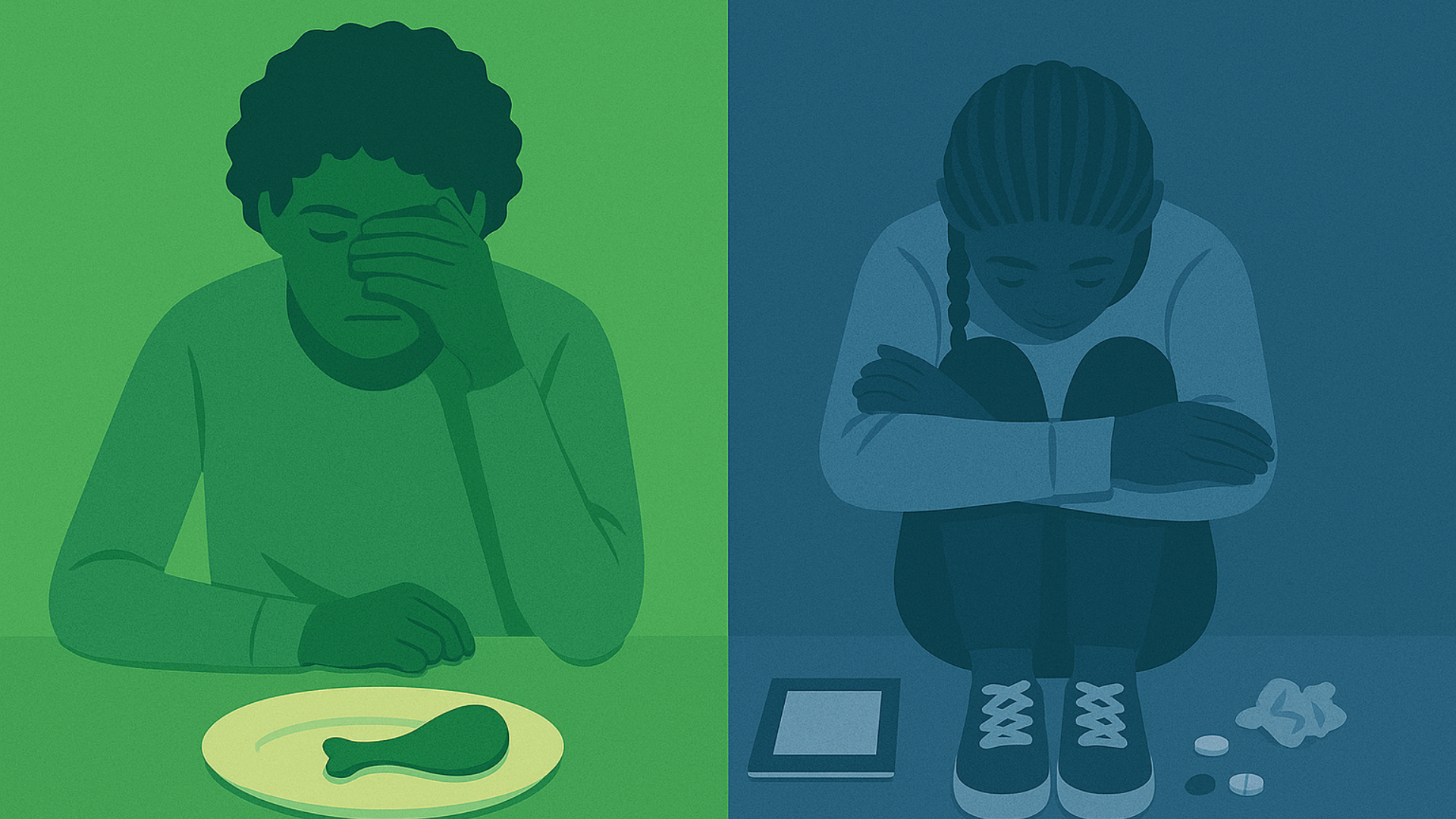Start Your New Year With Mindfulness

The beginning of a new year usually means writing a list of goals that we want to accomplish. Although most of our goals may aim to be positive, they can have some negative impacts. For example, a common resolution we hear is ‘I want to start eating healthier’. This is a goal we may think is good for us but in reality we are labeling food, restricting ourselves from eating certain things, buying into a diet culture and damaging our relationship with food. Instead, try to aim for mindful, aware eating. This is a much more sustainable goal, then ‘eating healthy’. At Thrive, we would like to challenge the new year’s resolution tradition, and replace the practice with mindfulness.
Mindfulness is a mental state achieved by focusing your awareness on the present moment, and calmly acknowledging your feelings, thoughts, and bodily sensations. The technique is an amazing tool to slowly transition habits, instead of incorporating an immediate change in behavior through a new year’s resolution which typically does not last.
For example, if you become mindful of how much television you watch, you can slowly start to adjust that behavior. When you start to acknowledge how watching T.V. makes you feel and why it makes you feel that way, you are aware of how to change the behavior to your favor.
Unlike a new year’s resolution, mindfulness is a lifestyle. It is a process that takes time, patience and awareness in order to be successful. Many of us want immediate gratification and change to happen overnight. Unfortunately, that is unrealistic. Through gradual change, you can create a new lifestyle that blossoms naturally.
Mindfulness can be useful in structuring your daily routine. When you pay attention to your daily behaviors and habits, you notice the activities that you do and don’t like. Maybe you enjoy taking a morning walk more than going for a morning run. Your feelings about your activities is your body’s way of communicating with you, and it’s your role to mindfully listen to these cues. Mindfulness emphasizes creating these connections between your mind, body and soul.
Checking in with your feelings and mental state can be extremely beneficial to not only you, but also the other people in your life. As part of practicing mindfulness, it’s important to remember that focusing on yourself is far from selfish. You can only be there for others if you take care of yourself. Here are some helpful steps to get started on your mindfulness journey:
-
Reflect on your behavior and habits. You can only change what you are aware of.
-
Keep a mindfulness journal. Write down what you do each day. What did you like? What did you not like? What would you like to change? Each day, read this journal and start making mindful adjustments to create your desired lifestyle.
-
Be patient and kind to yourself. Changing your lifestyle does not happen overnight. Remain positive, patient and open minded throughout your journey.
-
It is okay to make mistakes. Humans are creatures of habit, therefore it is challenging to break out of unwanted habits. We all make mistakes, we all mess up, and that is okay!
-
Check in with yourself. Practicing mindfulness means creating a healthy connection with your body, mind, and spirit. As with any other relationship, you must respect, love and communicate with yourself.
Start your year thriving!
Thrive prides itself on treating the whole patient — mind and body. We incorporate mindfulness into our various therapeutic approaches to help clients on their healing journey. If you are struggling with letting go of last year or getting on your feet this year, you are not alone! Many of us had a tough year, but this is the time to start fresh. We specialize in treating individuals with an emphasis on eating disorders (food issues) , perinatal mood and anxiety disorders , anxiety disorders , obsessive compulsive disorders , and depressive disorders. Make mental health a priority, and start the new year thriving! To learn more about our services visit thrivewellnessreno.com.
The post Start Your New Year With Mindfulness first appeared on Thrive Wellness.








